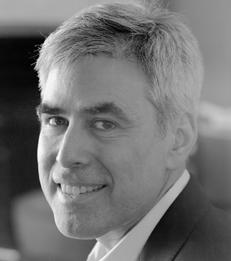Opinion
Monomania Is Illiberal and Stupefying
—

By Jonathan Haidt
In its 15 months of publishing, Persuasion has given its readers extensive coverage of the democracy recession happening around the world, and of the threats to liberal democracy coming from within the United States. Some of those threats come from the far right and some from the far left. Within the category of threats from the far left, there are many reports about rapid change in specific professions. For example, we’ve read reports on The New York Times, the CDC, psychotherapy, medicine, documentary filmmaking, corporate America, Kindergarten teaching, elementary school teaching, math teaching, literature teaching, K-12 teaching, and the transformation of American universities as they have strayed from their previous telos—their ultimate purpose—of truth.
In the last few years, I have had dozens of conversations with leaders of companies and nonprofit organizations about the illiberalism that is making their work so much harder. Or rather, I should say I’ve had one conversation—the same conversation—dozens of times, because the internal dynamics are so similar across organizations. I think I can explain what is now happening in nearly all of the industries that are creative or politically progressive by telling you about what happened to American universities in the mid-2010s. And I can best illustrate this change by recounting the weirdest week I ever had in my 26 years as a professor.
In October 2018 I was on a book tour, speaking about The Coddling of the American Mind, a book I co-wrote with Greg Lukianoff. The publisher had packed five lectures at five colleges into five days. On Monday, I arrived at the first college and was surprised to see a statue of Sigmund Freud on a pedestal in front of the main gate. I gave my talk, took questions from the audience, and then met with a senior seminar class in psychology. In all of my interactions with students, I found that all they could talk about was sexuality. These students had somehow come to believe that everything people do is ultimately done to relieve repressed anxiety stemming from unresolved childhood sexual conflicts. I personally love reading Freud, and I agree with him that sexual motives sometimes drive seemingly non-sexual behavior, but I was saddened to see an entire cohort of students limiting their minds to a single analytical lens on our very complex world.
Read the full Persuasion article.
___
Jonathan Haidt is the Thomas Cooley Professor of Ethical Leadership.
In the last few years, I have had dozens of conversations with leaders of companies and nonprofit organizations about the illiberalism that is making their work so much harder. Or rather, I should say I’ve had one conversation—the same conversation—dozens of times, because the internal dynamics are so similar across organizations. I think I can explain what is now happening in nearly all of the industries that are creative or politically progressive by telling you about what happened to American universities in the mid-2010s. And I can best illustrate this change by recounting the weirdest week I ever had in my 26 years as a professor.
In October 2018 I was on a book tour, speaking about The Coddling of the American Mind, a book I co-wrote with Greg Lukianoff. The publisher had packed five lectures at five colleges into five days. On Monday, I arrived at the first college and was surprised to see a statue of Sigmund Freud on a pedestal in front of the main gate. I gave my talk, took questions from the audience, and then met with a senior seminar class in psychology. In all of my interactions with students, I found that all they could talk about was sexuality. These students had somehow come to believe that everything people do is ultimately done to relieve repressed anxiety stemming from unresolved childhood sexual conflicts. I personally love reading Freud, and I agree with him that sexual motives sometimes drive seemingly non-sexual behavior, but I was saddened to see an entire cohort of students limiting their minds to a single analytical lens on our very complex world.
Read the full Persuasion article.
___
Jonathan Haidt is the Thomas Cooley Professor of Ethical Leadership.
